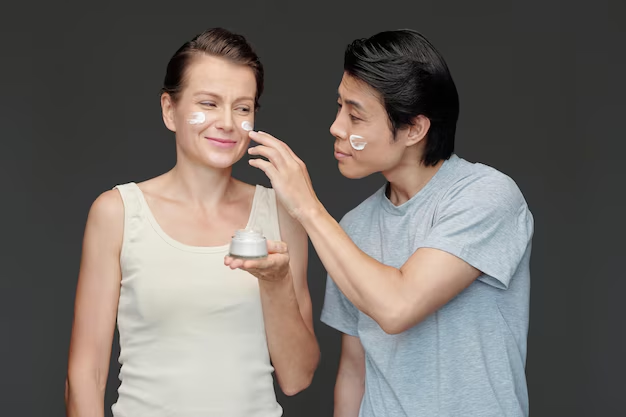Clear Skin Ahead: Smart Ways to Keep Acne at Bay
Acne can often feel like a stubborn adversary, popping up at the most inconvenient times. For many, it's more than just a minor skin annoyance; it can be a major confidence barrier, impacting one's self-esteem and social interactions. The good news is that preventing acne is within reach, thanks to a combination of lifestyle choices, effective skincare routines, and being proactive about what influences our skin's health.
Understanding Acne: The Basics
Before diving into prevention strategies, it's important to understand what causes acne. This common skin condition typically results from clogged hair follicles under your skin. Oil, dirt, and dead skin cells being trapped in these pores can invite bacteria, leading to inflammation and those notorious red bumps.
Key Acne Triggers
- Hormonal Changes: Puberty, menstruation, or hormonal imbalances can all increase oil production.
- Diet Choices: Foods high in sugar and dairy are believed by some to exacerbate acne.
- Stress Levels: Stress doesn't directly cause acne, but it can worsen it by triggering oil production.
- Poor Skincare Habits: Lack of proper cleansing can lead to accumulation of dirt and oil.
Skincare Routine: Your First Line of Defense
Building a consistent skincare routine is one of the most effective ways to keep acne at bay. Here's a breakdown of essential steps:
Daily Cleansing
Clean your face with a mild cleanser twice a day, especially if you wear makeup or are exposed to pollution. Overwashing can strip your skin of essential oils, so find a balance.
- Morning: Begin with a gentle cleanse to remove nighttime bacteria and sweat.
- Night: Ensure all makeup is thoroughly removed to prevent clogged pores.
Moisturizing and Hydration
Hydration is key! While it might seem counterintuitive, everyone—even those with oily skin—needs to moisturize. Opt for a non-comedogenic moisturizer that won’t clog pores.
Exfoliation
Regularly exfoliating your skin helps remove dead skin cells and unclogs pores, but be cautious. Over-exfoliating can irritate and worsen acne. Aim for once or twice a week with a gentle exfoliator.
The Role of Diet in Acne Prevention
Fueling your body with the right nutrients can have a notable effect on your skin health. Here are some nutritional tips to prevent acne:
Go for a Balanced Diet
Eating a diet rich in vitamins and minerals supports overall skin health. Include plenty of fruits, vegetables, and whole grains.
Spot Triggers
While research is still ongoing, some people report clearer skin after cutting out or reducing high-glycemic foods and dairy products. Monitor how different foods affect your skin and make adjustments accordingly.
Stay Hydrated
Water is your skin’s best friend. Staying hydrated helps flush out toxins and keeps your skin hydrated from the inside out.
Lifestyle Choices & Stress Management
Your everyday habits have a significant impact on your skin:
Get Enough Sleep
Lack of sleep can lead to higher stress levels and acne. Aim for 7-9 hours of sleep per night to keep your skin—and body—healthy.
Manage Stress
Consider incorporating stress-reducing practices into your routine, such as yoga, meditation, or regular exercise. These activities not only lower stress levels but also improve your overall health.
Makeup and Product Choices
If you wear makeup, be intentional about your choices. Opt for non-comedogenic and hypoallergenic products to reduce the risk of breakouts.
Regularly Clean Tools
Clean makeup brushes and sponges regularly to prevent bacteria buildup. This simple tip can prevent the transfer of unwanted dirt and germs onto your skin.
Monitor and Maintain
Everyone’s skin is different. By understanding and monitoring your skin, you can adapt your routines as needed. Here are some personalized tips:
Keep a Skin Diary
Track what you eat, use, and how your skin reacts. This can help identify any patterns or acne triggers.
Avoid Touching Your Face
Throughout the day, our hands come into contact with countless surfaces. Avoid touching your face to minimize the risk of transferring oils and bacteria from your hands to your facial skin.
Consult with Professionals
Sometimes, over-the-counter products may not suffice. If acne severely impacts your life, consider visiting a dermatologist who can recommend or prescribe additional treatments tailored for you.
Sun Protection
Always use sunscreen to protect your skin from UV damage. UV exposure can worsen acne and lead to spots.
Final Insights
Preventing acne is a holistic endeavor. By making conscious choices about skincare, diet, and lifestyle, you create an environment where your skin can thrive. While everyone’s journey to clear skin is unique, the key lies in consistency and patience. It's about finding what works best for you and sticking with it. Remember, clear skin is a reflection of a healthy body and mind working in harmony.
🔑 Quick Takeaways for Healthy Skin
- Daily Routine: Cleanse twice, moisturize, and exfoliate weekly 🧖♀️
- Food Choices: Prioritize fruits, vegetables, and whole grains 🍎🥦
- Hydration: Drink plenty of water 🚰
- Sleeping Habits: Aim for 7-9 hours of sleep 😴
- Manage Stress: Engage in yoga or meditation regularly 🧘♂️
- Choose Products Wisely: Use non-comedogenic makeup 🎨
- Sun Protection: Apply sunscreen daily ☀️
- Professional Help: Seek advice from dermatologists when necessary 🩺
Embrace these practices to pave the way for clearer, healthier skin! 🌟

